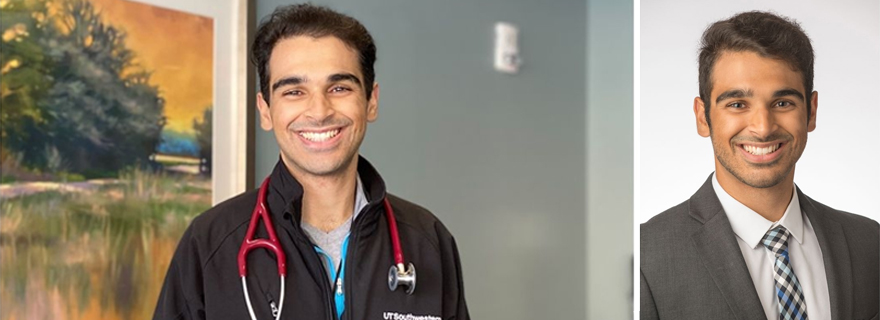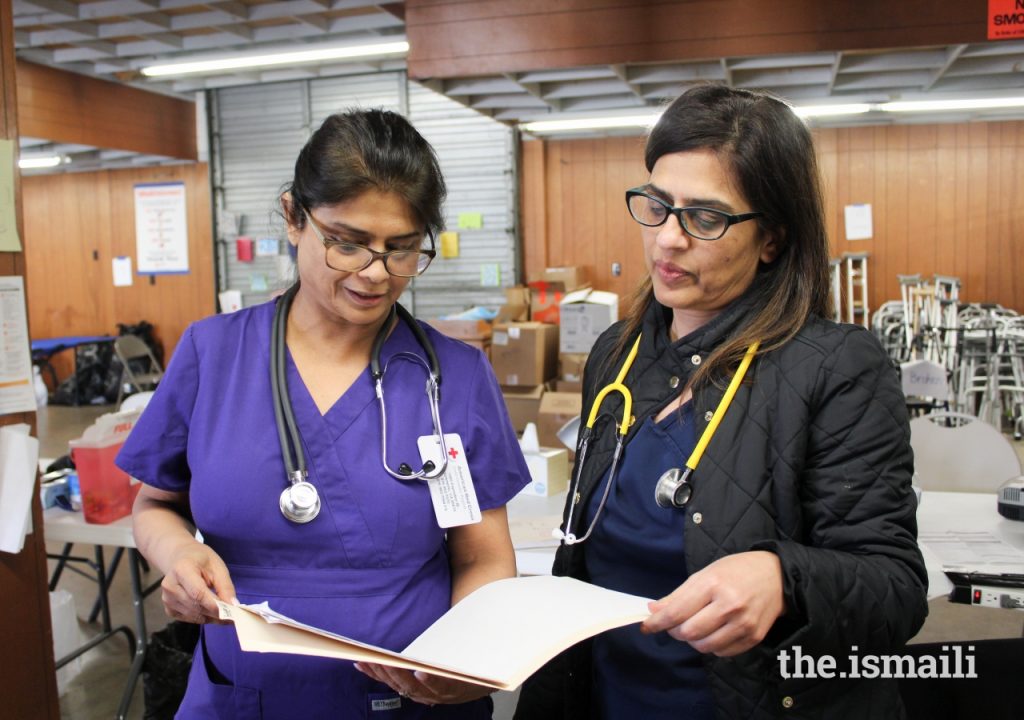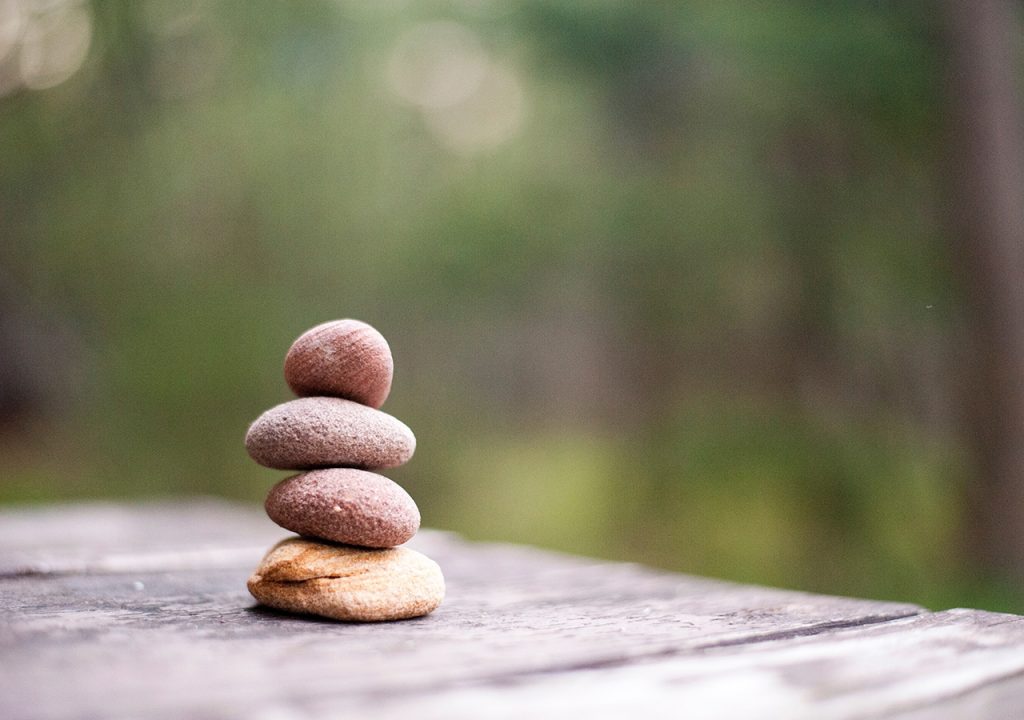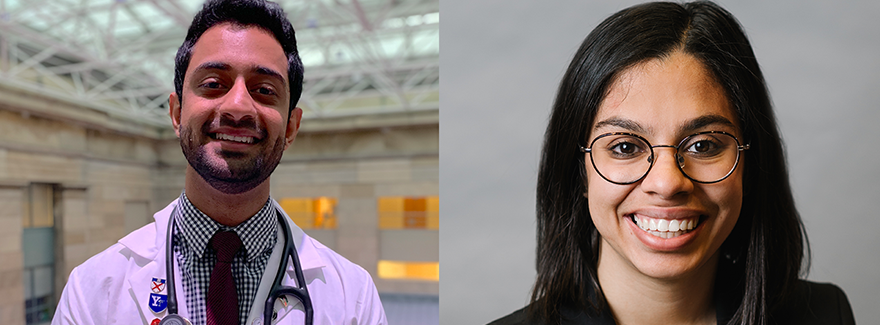Healthcare Heroes Persevere Amidst their own Anxieties
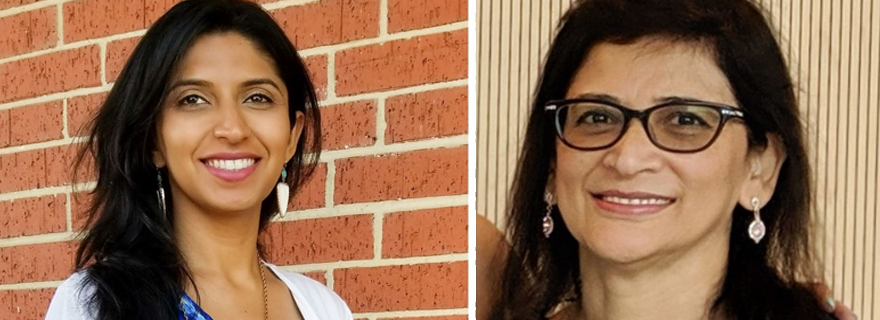
Two healthcare workers recount their fears and responses from the frontlines against COVID-19. Sumera Makhani, PA-C, ED Covid-19 Frontline Provider (Left). Shamim Semmy, RN, BSN a nurse in Dallas (Right).
There has never been a better or worse time to be in healthcare in recent history. Those serving on the frontlines against the Covid-19 pandemic have been celebrated as heroes. It’s easy to reason why; the underlying goal to save lives while adhering to the Hippocratic Oath remains intact, but the risk of doing so has increased dramatically.
These workers are making personal sacrifices in the fight to save lives, often facing limited or insufficient personal protective equipment, trauma from witnessing patients and even colleagues fall ill and die, and fatigue and loneliness from living away from family weeks on end to tirelessly treat affected individuals.
Still, Sumera Makhani and Shamim Semmy are two healthcare workers who would not dream of being anyplace else.
“I wanted to serve those who are sick, solve mysteries of their illnesses, and form a healing bond,” Sumera said.
Sumera thought she would follow her family’s example and become an IT professional; she even received a full scholarship to the University of Texas, Dallas, and excelled in her rigorous computer science classes. However, life had other plans for her. Sumera’s mother was diagnosed with ovarian cancer, and Sumera stepped up and became her mom’s chief supporter.
Fortuitously, her mother beat cancer, but it was during those frequent treatment and doctor’s visits where Sumera got a direct view into the world of medicine. She saw first-hand how healthcare providers were selfless, formed bonds with strangers, and saved lives. It was then that she realized a career in healthcare was her rightful path.
Sumera is now a physician’s assistant in a busy emergency department and focuses on evaluating, treating, and stabilizing COVID-19 patients. When treating patients, she’s conscious of the fact that they’re unwell and alone in an overwhelming environment. She does the best she can to provide additional support to them and their loved ones via telecommunication to keep them informed.
“Hospitals are a scary place for both patients and providers,” Sumera said. “It is scary because you may unknowingly carry this enemy to your home and put your family at risk. Yet, we go on: treating, stabilizing. and caring.”
Shamim Semmy felt similarly, but the Dallas nurse was also distraught about the strict isolation protocols required to provide care for COVID-19 patients. Nonetheless, like any time-tested caregiver, she persevered and took it in stride. She has provided care for numerous patients across the entire spectrum of the virus – from stable patients to dire situations post-CPR.
One of the many hurdles Shamim has encountered has been explaining the necessity for strict isolation to COVID-19 patients, many of whom do not grasp how important isolation is in their recovery. She has also taken the initiative in updating family members more frequently since they are not allowed in the isolation space.
Shamim’s journey in healthcare started when she was in the eighth grade and commenced with a calamitous turn of events; her father suffered a heart attack. She rushed him to the Aga Khan Hospital in Karachi, Pakistan. This jarring event – taken in from the mind of a young, optimistic student – served as a springboard to immerse herself in the study of medicine and healthcare. Her father’s nurses and doctors became more than their functions; they became heroes to her, titans of their trade, and inspired her to undertake a career in nursing. She graduated from AKUSON in 1985, and she completed her Bachelor’s degree a few years later in 1996.
Shamim worked as a nurse at AKUH for 15 years before moving to Dallas and has now been a nurse at Baylor Scott & White at Irving for 17 years. She has worked in the Intensive Care, Critical Care, and Post-anesthesia Care units.
As Sumera and Shamim continue to navigate through this shifting landscape, they encourage the Jamat to take care of themselves physically, mentally, and spiritually during these trying times. “Find a way to daily feed and improve each of these three aspects of yourself,” Sumera suggested.
“I have learned that life is short and unexpected,” Shamim added. “Instead of focusing on material things, we should focus on spending time with family and loved ones.”

